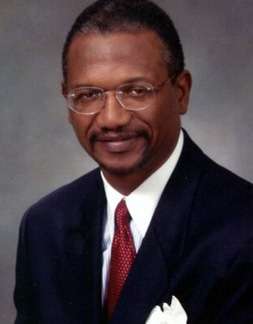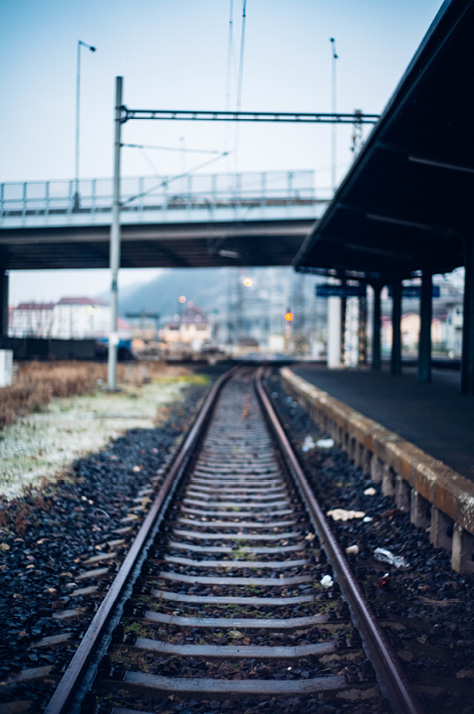by Aswad Walker, The Houston Defender defendernetwork.com
If you’ve ever driven through a Houston Black community, then through River Oaks or the Galleria area, you know personally that trains aren’t colorblind.
While they seem to zip through upscale and predominantly White areas at speeds that barely hold up traffic, and with all manner of traffic crossing arms and lights, countless tracks in Black and Brown areas not only lack those safety measures, but the trains seem to lack that same sense of urgency and often choose to take extended breaks, seemingly parking in Black areas, blocking traffic for 30 minutes or more.
And this Black reality can have deadly consequences.
The Defender recently spoke with State Rep. Harold Dutton, who has made changing this reality one of his top priorities.

Defender: What have you done recently regarding this issue of trains going through Black communities and the lack of safety?
Dutton: I had a town hall meeting, where a bunch of the residents from Fifth Ward came. We also had the railroad people there, and we had the state people there. We didn’t get the feds. He couldn’t get here.
We had all the residents there, and they were talking about how unsafe the trains were, particularly those trains that pass over Lyons Avenue at about Lyons at St. Elmo.
We told them that somehow or another, that was going to be a crisis because what happens is the train stays on this track for such a long period of time. People do all kinds of crazy things.
Defender: Crazy things like what?
Dutton: People in cars get to drive around or access another direction. But for those people walking, they have to stand there. And, many of the children going to school down the street, walk past there.
But what happened more recently, an elderly gentleman who had stood there for a while decided that he had had enough, and he crawled under the train.
Well, I don’t have to tell you the rest of the story. He tried to crawl under the train, and the train started moving and basically ended his life. I told the [railroad] people that the blood of this man is on their hands because we told them this was going to happen.
Somehow or another, we didn’t get the right people to listen to us. But, they’ve got to do something different, not only at that intersection but also at all of these crossings where they have trains in Black neighborhoods.
Defender: What do you say to those who disbelieve this unequal railroad crossing reality?
Dutton: A gentleman who saw me talking about the trains said to me “When the train passes over Westheimer, it only takes about 15 minutes because that train is going probably 25 to 30 miles an hour. It never stops.
It never blocks Westheimer for longer than 10 or 15 minutes.” Well, we need the same thing to happen in our neighborhood, and the railroad has to come forward and start doing something differently.
In the meantime, I’m trying to get city council and everybody that will listen to say, “Let’s put grade separations in areas, particularly those areas where they have high traffic volume and high volumes of people actually walking down that particular street.
Defender: Is this a new or old issue?
Dutton: This whole idea of trains in Black neighborhoods just hadn’t been a plus for us. Even go all the way back to the seventies, when the trains over there had a plant that was spreading all kinds of cancer-causing agents in it where they had this creosote treating plant.
Where they were treating railroad ties, and using all kinds of not only creosote, which is a carcinogen itself, but they were using industrial waste to add to the creosote. That industrial waste, we find out, had everything in it from arsenic to zinc. And they never told the community about it.
Defender: Has anyone given you a viable explanation for why trains will just sit there and park in Black communities for seeming hours, yet zoom through White communities?
Dutton: No. In fact, they tried to pretend that it didn’t happen. Because what they said to me is they have a rule. Trains can only block intersections for 20 minutes at the most.
I said, “Excuse me, but that’s bull.” One Saturday, I was campaigning and my campaign office was a block down from the track where the gentleman died. I got there about nine o’clock that morning; the train was there.
When we came back at 4:30 p.m., the train was still there. We tried to say to the train people that if you’ve got a rule that says that, then I asked them who enforces it. And I haven’t gotten an answer to that yet.
Defender: What’s the solution?
Dutton: We’re still working on that. We’re meeting with the feds who have the primary jurisdiction, the railroad administration people, because we’ve gotta do a whole lot more than we’ve been doing, both in terms of the movement of those trains, the trains that remain stationary, in our communities across intersections.
If you go out in Fifth Ward, you can go on Lyons Avenue and go on Market St. You can go just about anywhere, and you’ll find that these trains are doing exactly the same thing.
Defender: How long have you witnessed this issue personally?
Dutton: I grew up in Fifth Ward. I can tell you, we adjusted to it because we knew the trains were gonna be there. We would come home from school, from E.O. Smith, and the train would be there, and we would simply climb on the train, climb over it, and jump off.
We didn’t even think about somebody getting hurt until one of my friends got his foot cut off by that train. That’s the first time we even thought about how unsafe it was for us to be doing that. That goes back to 1955, ‘56, ‘57.
That’s how long I know it’s been going on, and it’s perhaps been going on much longer than that. But it’s time for us to do something about it, even if it takes some measures that we don’t generally try to use, going over and picketing over at Union Pacific every day.
My condolences go up to the gentleman who was killed. I don’t know him, but I’ve seen him walking up and down Lyons Avenue. We don’t have his name yet. We’re trying to find his family.
It’s just so tragic that a month or two months ago, we told them that this was going to happen, yet nobody listened. It finally happened, and somebody had to lose their life.
Defender: What can people do to help you in this cause?
Dutton: Call your congresspersons, call your state representative, call your city councilman and tell them you just had enough of this and you had enough of these trains causing quality of life issues in Black communities to be differently than it is in the other larger community.













